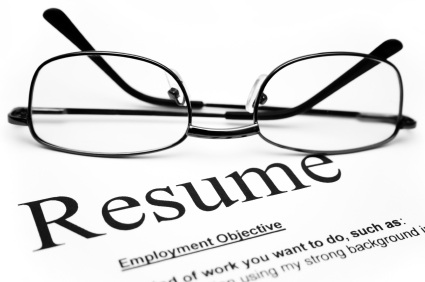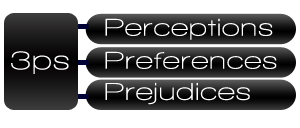The Resume Revisited – 6 Changes to Make Now!
 We have talked about the resume in other posts, but this one will help you reform this important tool. You may need to consider some omissions and additions. These items will change the attractiveness of your resume, and now is the time to do it.
We have talked about the resume in other posts, but this one will help you reform this important tool. You may need to consider some omissions and additions. These items will change the attractiveness of your resume, and now is the time to do it.
Your resume is not a complete bio, and it is not a curriculum vitae, it is designed to create the level of interest that prompts someone to say, “I want to learn more about this candidate!”
The perfect resume may not exist, but having more than one resume (Black Sales Journal 11/21/2011 Is Your Resume Race Neutral?) is something that I strongly suggest. A resume for the job of sales representative for an equipment manufacturer that will require extensive cold calling is much different that a job as an order taker who doesn’t have to cold call but requires the ability to handle volume and extraordinary organizational skills.
Having sales skills and an understanding of the process in the overall is much more universal than just knowing how to sell a category of products. Your worth may increase some with specialization, but knowledge of sales skills and the process often trumps product knowledge. The X factor will be relationships in the right position. Remember this in your wording.
6 Items for Consideration
As you start this year’s job hunt, you will want to reform your resume to consider these important changes from the resumes that you may have been used to constructing:
Remove the objectives section – What in the heck does it really get you? I hired for years, and realized that this section was often someone telling me what I wanted to hear so that they could get the interview. It did not work. In many cases, the objective section could be used against you if you are not careful in how it is constructed. This will also open up valuable room by shortening the total length, while not sacrificing any content. It will also give room for other important items that enhance your marketability.
Remove short-term irrelevant jobs – If you have short term irrelevant jobs, including temporary employment, you will want to consider shortening the actual resume by excluding these positions, especially if the positions are for less than a few months. Yes, you will have some employment gaps, yet you will be able to explain them fully in your job application, which you should have to fill out and sign, and during the interview. If you would like, you can have an abridged version of the resume, and to represent accuracy, a full version. Your search for the job will include the abridged version. This is only important if you have several short term or temporary jobs.
List job accomplishments for each job – A great outplacement professional and reference named Dave G. gave me some solid advice a couple of years ago. He indicated that a good resume needs at least 3 accomplishments shown for each important position. An accomplishment is just that, something that was accomplished, and not a skill. Appropriate examples would be:
- Achieved a 12% increase in growth in sales and total revenue for the 2011 year for my assigned territory
- Increased customer count 20% while increasing customer retention by 8% 2011 versus 2010
- Achieved rank of top sales executive in the Eastern Division and #3 ranking nationally.
Be ready to back them up with substantiation if necessary, but don’t be ashamed of indicating these notable accomplishments. Be specific and as concise as possible.
Know and include the keywords for the positions that you want – This one is important and I will write on it more in the very near future. Keywords are important from the standpoint of the screening process. If you resume gets screened out, you will miss the opportunity to be interviewed.
I will never attempt to say that I am a keyword expert, yet I understand the concept. You will as well. In a search for eligible candidates in a high-volume search (one where many candidates have the similar qualifications) such as sales representative, employers use automation to make the search easier. Software utilized to find the keywords in your resume will be used to segregate those that go to the top of the pile from the others. You want yours to be in the top of the pile.
Key place to find these keywords would be the job description or job brief for the job that you are applying for. Other hints would include your college placement office, a recruiter or headhunter, and industry magazines and reference books.
Sites to get more valuable information on keywords are as follows:
Job-Hunt.org http://www.job-hunt.org/resumekeywords.shtml
Quintesssential Careers.com http://www.quintcareers.com/resume_keywords.html
If you are involved in what you suspect as a high volume search you should know your keywords, and make sure that cover letter and resume have an adequate amount of them.
Skip the references – I will keep this one short. Everyone knows that you can produce references. When I would get a resume that indicated “References available upon request”, I would always wonder why it was there. At some point I took it off of my resume and don’t think it was ever missed. It is common, but not necessary. If you need the room, use it. Both you and the prospective employer know that you may be called upon to provide references.
Keep the resume as “race neutral” as possible – You have read this one in Black Sales Journal before ((Black Sales Journal 11/21/2011 Is Your Resume Race Neutral?). Let you resume work for you by keeping it “race neutral”. You don’t know that the prospective employer is y fair, and you do not know what experiences that they have had in the past which my work against you. Avoid tipping off your race during this phase. They will know soon enough when they call you for your interview. Mentions of your fraternity, sorority, or social groups can benefit you but also can militate against you. If you do not know that it will benefit you, such as they drrk a Black candidate, then avoid it.
Pay Attention to Detail
If your resume is the key to getting in the door, make sure it is solid, and correct. Have it reviewed by more than one individual, and that the keywords are there. It is difficult when you are chocking this full of information about your favorite topic (yourself!) for you to easily note all the things that need to be tightened up or corrected.
Your comments are welcomed.
Be the best!
 January 23, 2012
|
Posted by Admin9!
January 23, 2012
|
Posted by Admin9!
 Categories:
Categories:  Tags:
Tags: 

Your Comments